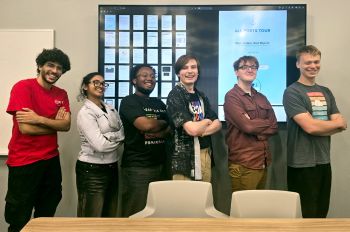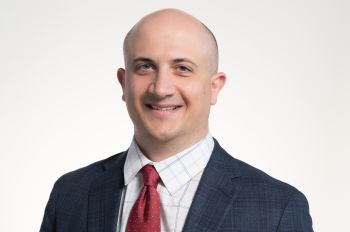Health Physics Degree Program Evolves to Meet New Challenges

Radiation experts are urgently needed to address rising national security concerns. The Illinois Institute of Technology’s Health Physics curriculum is designed to ensure nuclear safety and protection, and with two new specialties it offers the unique technical expertise to face these heightened security challenges.
Health physicists find methods and techniques to contain, mitigate, and control radiation levels to protect the workplace, the public, and the environment. For more than 20 years, the Master in Health Physics program at Illinois Tech, making it a national leader among such programs. The current director, S.Y. Chen wants to take it further to meet the emerging challenges that face the nation.
Two new specializations are being added to the program to meet the needs of an evolving field. The first students admitted to the radiochemistry specialization began in the fall of 2018. In 2019 students will be able to enroll in the radiological security, emergency preparedness and response specialization.
Radiological security, emergency preparedness and response was developed to meet a variety of national security issues, which include securing nuclear material from adversaries, reacting to nuclear attacks, and responding to severe nuclear reactor accidents.
“Just because you are a health physicist, it does not mean you know how to respond to an emergency,” Chen says. “No health physics program in the nation is set up for emergency training.”
Training health physicists to respond to emergencies is available in the form of seminars and conferences, but it is rare to find that training embedded into an academic curriculum.
The new specialization will educate health physicists to meet the basic qualifications for the Department of Homeland Security’s Radiological Operations Support Specialist (ROSS) Program. The ROSS program helps radiation safety professionals integrate with the incident command system so they can provide emergency-specific radiological and nuclear information to the incident commander. This allows emergency managers to make better decisions specific to the incident and ensures properly trained health physicists are mobilized as part of the incident command structure.
Communication skills also will be a key component of the new program curriculum. These specially trained health physicians will have to communicate with not only incident commanders and first responders, but also government officials and the public.
“Back in March 2011, when Fukushima happened, the media was totally confused, the government was totally confused, and nobody could step in and know exactly what to expect,” Chen says. “There was total chaos. And the fear ensued.”
This is of particular local concern as Illinois is home to 11 nuclear reactors in six power plants, the most in the United States.
“You can imagine if something like that happened here at one of the power plants in Illinois,” Chen says. “It would be catastrophic. But misinformation, rumors—these are probably some of the worst enemies we could face.”
Another growing market in the health physics field is nuclear medicine, which Chen began addressing with the radiochemistry specialization in 2018.
“That area deals with radiopharmaceutical isotopes,” Chen says. “Any time you go to a hospital for a diagnostic test, they will inject you with a tracer that the CT scan can track. New isotopes are also used for treatment. We feel it’s important for the program to address this emerging specialization.”
Radiochemists also often aid in nuclear forensics, to see and determine what kinds of radioactive materials may have leaked into public spaces and to examine how dangerous leaks might be.
Despite emerging markets in radiochemistry, there is a severe shortage of radiochemists in the country. According to a study conducted by the National Academies of Sciences, Engineering and Medicine, approximately 50 master’s degrees in radiochemistry were issued between 2013 and 2018 to meet a demand of 93 in the medical, energy, and laboratory sectors. During the same period, 65 Ph.D. degrees in radiochemistry were issued to meet a demand of 306 in those same sectors.
Allowing students to work in a radiochemistry lab is of utmost importance to the program. A partnership with the University of Missouri enables all Illinois Tech students in the radiochemistry specialization to access the research reactor and lab at the University of Missouri, a nationally renowned research center for nuclear medicine.




